-
 Bitcoin
Bitcoin $113900
-1.39% -
 Ethereum
Ethereum $3517
-4.15% -
 XRP
XRP $3.009
1.59% -
 Tether USDt
Tether USDt $0.9997
-0.04% -
 BNB
BNB $766.8
-1.41% -
 Solana
Solana $164.6
-2.38% -
 USDC
USDC $0.9998
-0.02% -
 TRON
TRON $0.3277
0.65% -
 Dogecoin
Dogecoin $0.2023
-1.67% -
 Cardano
Cardano $0.7246
0.05% -
 Hyperliquid
Hyperliquid $38.27
-4.77% -
 Sui
Sui $3.528
-0.52% -
 Stellar
Stellar $0.3890
-0.73% -
 Chainlink
Chainlink $16.16
-2.69% -
 Bitcoin Cash
Bitcoin Cash $539.9
-4.38% -
 Hedera
Hedera $0.2425
-2.00% -
 Avalanche
Avalanche $21.71
-0.97% -
 Toncoin
Toncoin $3.662
5.73% -
 Ethena USDe
Ethena USDe $1.000
-0.02% -
 UNUS SED LEO
UNUS SED LEO $8.964
0.35% -
 Litecoin
Litecoin $107.7
2.33% -
 Shiba Inu
Shiba Inu $0.00001223
-0.40% -
 Polkadot
Polkadot $3.617
-0.97% -
 Uniswap
Uniswap $9.052
-2.49% -
 Monero
Monero $295.1
-3.79% -
 Dai
Dai $0.9999
0.00% -
 Bitget Token
Bitget Token $4.315
-1.85% -
 Pepe
Pepe $0.00001060
0.11% -
 Cronos
Cronos $0.1342
-2.72% -
 Aave
Aave $256.0
-0.87%
What are the ways to combine NFT and DeFi? How does mortgage lending work?
NFTs are now used as collateral in DeFi mortgage lending, allowing users to generate liquidity from their digital assets through smart contracts and decentralized platforms.
Jun 10, 2025 at 10:57 pm

Understanding the Intersection of NFT and DeFi
The non-fungible token (NFT) space has grown beyond digital art and collectibles, intersecting with decentralized finance (DeFi) to unlock new financial instruments. This integration enables users to leverage their NFTs in a permissionless, trustless environment. One of the most prominent ways these two ecosystems merge is through mortgage lending, where NFTs serve as collateral for loans.
Unlike traditional finance, DeFi platforms allow for transparent, programmable, and automated lending and borrowing mechanisms. The key innovation lies in using smart contracts to enforce loan terms without intermediaries. In this context, NFTs are not just assets for ownership or display—they become tools for liquidity generation.
How NFTs Function as Collateral in DeFi Lending
To understand how mortgage lending works in the DeFi space using NFTs, it's essential to first grasp the idea of collateralization. When an individual wants to borrow funds, they must lock up an asset as security. In the case of NFT-backed loans, the borrower deposits their NFT into a smart contract as collateral.
- The borrower specifies the loan amount and duration.
- Lenders or liquidity pools evaluate the NFT’s value before approving the loan.
- If the borrower defaults, the NFT is automatically transferred to the lender via the smart contract.
This process eliminates the need for credit scores or centralized verification systems. Platforms like NFTfi, BendDAO, and Drops facilitate such peer-to-peer or pool-based lending protocols.
Different Models of NFT-Backed Mortgage Lending
There are several models emerging within the NFT-mortgage DeFi landscape:
- Peer-to-Peer (P2P) Lending: Borrowers list their NFTs on platforms like NFTfi and wait for lenders to offer loan terms. Once accepted, the NFT is locked until repayment.
- Pool-Based Lending: Protocols like BendDAO allow users to deposit ETH into a liquidity pool, which then provides loans based on NFT appraisals. This model decentralizes risk among multiple participants.
- Overcollateralized Loans: Most platforms require overcollateralization, meaning the value of the NFT must exceed the loan amount by a certain percentage (e.g., 150%).
Each model has its pros and cons, but all aim to provide a secure, decentralized way to monetize NFT holdings.
Steps Involved in Securing an NFT Mortgage Loan
For those interested in exploring this avenue, here is a step-by-step guide to obtaining an NFT-backed mortgage:
- Connect your wallet: Use MetaMask or another Web3 wallet compatible with the chosen platform.
- Select the NFT: Choose a supported NFT from your collection that meets the platform’s eligibility criteria.
- List the NFT as collateral: Submit the NFT for appraisal and set your desired loan terms (amount, interest rate, duration).
- Wait for lender offers: For P2P models, review incoming offers and accept one that suits your needs.
- Receive funds: Upon acceptance, the loan amount is transferred to your wallet, while the NFT remains locked in escrow.
- Repay the loan: Make timely repayments to retrieve your NFT. If you fail to repay, the NFT is liquidated to the lender.
These steps highlight how accessible and user-friendly the process has become, even for relatively new participants in the crypto space.
Challenges and Risks in NFT Mortgage Lending
Despite the innovative potential, there are notable risks associated with combining NFTs and DeFi:
- Price Volatility: NFT values can fluctuate rapidly, making undercollateralization a real concern.
- Smart Contract Vulnerabilities: Bugs or exploits in the underlying code could lead to fund loss or unauthorized access.
- Liquidity Issues: Not all NFTs are easily tradable, which complicates valuation and increases default risk.
- Regulatory Uncertainty: As with many aspects of DeFi, regulatory clarity is still evolving, which could impact future operations.
Users should carefully assess both the platform and the NFT being used as collateral before proceeding.
Frequently Asked Questions (FAQ)
Q: Can any NFT be used as collateral for a DeFi loan?
A: No, only NFTs supported by the specific DeFi platform can be used. Popular collections like Bored Ape Yacht Club or CryptoPunks are often accepted due to their high market liquidity and established valuations.
Q: What happens if I repay my NFT-backed loan early?
A: Early repayment typically results in reduced interest costs. The NFT is released back to the borrower once the principal and accrued interest are settled.
Q: Are NFT mortgage loans available globally?
A: Yes, since these are decentralized platforms, anyone with internet access and a compatible wallet can participate, regardless of geographic location.
Q: How is the value of an NFT determined for loan purposes?
A: Valuation can be based on recent sales data, floor prices for similar NFTs in the same collection, or algorithmic assessments provided by the platform. Some services also use oracles for real-time pricing.
Disclaimer:info@kdj.com
The information provided is not trading advice. kdj.com does not assume any responsibility for any investments made based on the information provided in this article. Cryptocurrencies are highly volatile and it is highly recommended that you invest with caution after thorough research!
If you believe that the content used on this website infringes your copyright, please contact us immediately (info@kdj.com) and we will delete it promptly.
- Bitcoin, XRP, and the Price Drop Blues: What's Shakin' in Crypto?
- 2025-08-03 00:30:12
- Bank of America, Ripple, and RLUSD: A New Era in Digital Finance?
- 2025-08-03 00:30:12
- Bitcoin Strategy: Saylor's Not Hoarding, He's Building an Empire
- 2025-08-02 22:30:12
- Bitcoin Bloodbath: Macro Pressures and Liquidations Unleash Crypto Chaos
- 2025-08-02 22:30:12
- Tron, Cold Wallets, and Crypto Trends: What's Hot in the Market?
- 2025-08-02 23:10:12
- Bitcoin's Wild Ride: Davinci, Investors, and the $500K Dream
- 2025-08-02 23:50:12
Related knowledge
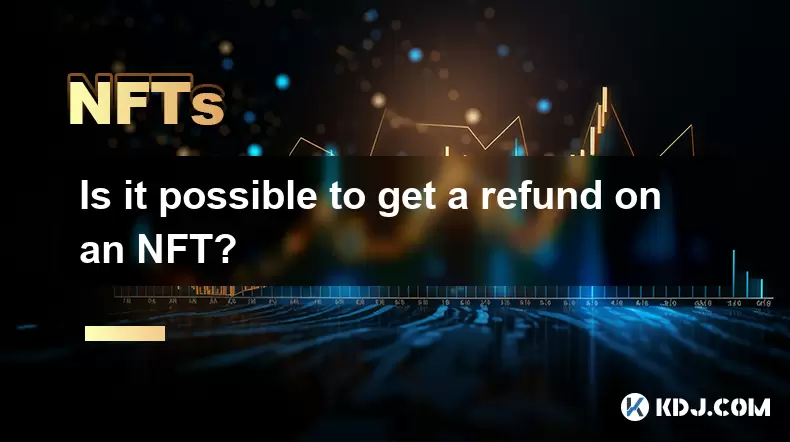
Is it possible to get a refund on an NFT?
Jul 21,2025 at 08:35pm
Understanding NFT Transactions and RefundsWhen you purchase an NFT (Non-Fungible Token), the transaction is typically recorded on a blockchain, making...
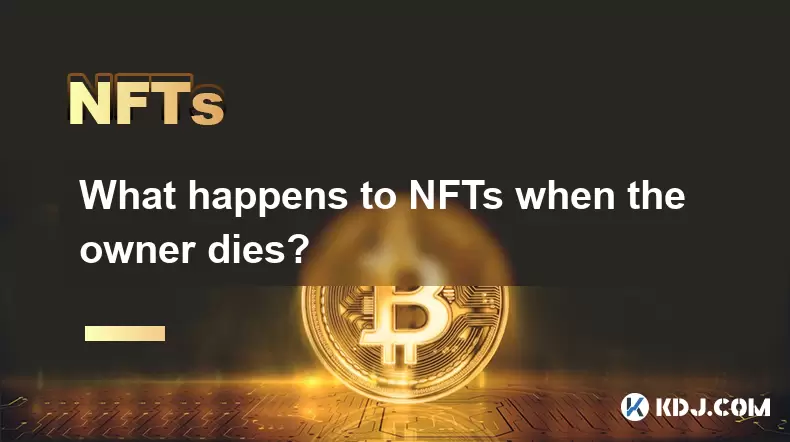
What happens to NFTs when the owner dies?
Jul 22,2025 at 02:43pm
Legal Ownership and Digital AssetsWhen an individual owns NFTs, the question of what happens to these assets upon their death is a pressing one. NFTs ...
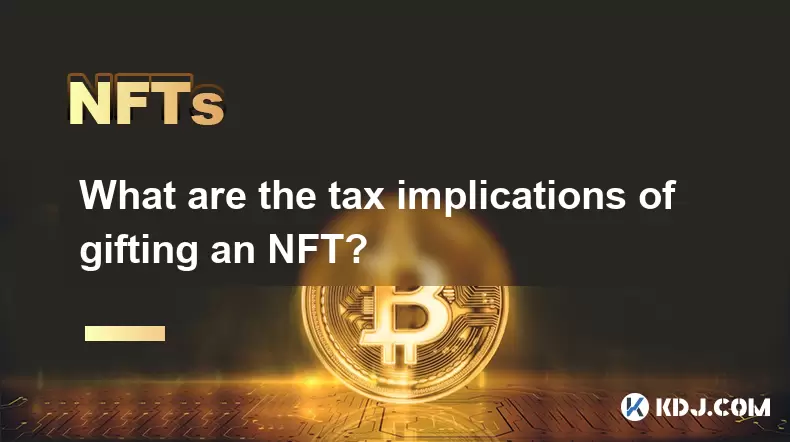
What are the tax implications of gifting an NFT?
Jul 19,2025 at 04:21am
Understanding the Basics of NFT GiftingGifting a Non-Fungible Token (NFT) involves transferring ownership from one individual to another without recei...
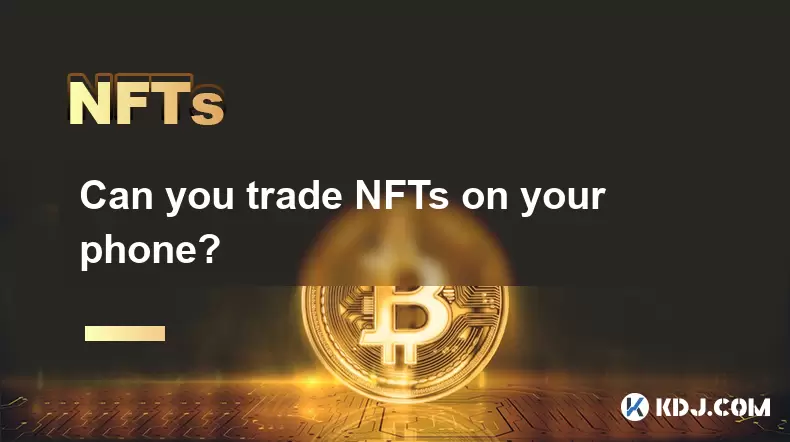
Can you trade NFTs on your phone?
Jul 18,2025 at 04:29am
Trading NFTs on Mobile DevicesYes, you can trade NFTs on your phone, and the process has become increasingly streamlined thanks to a variety of mobile...
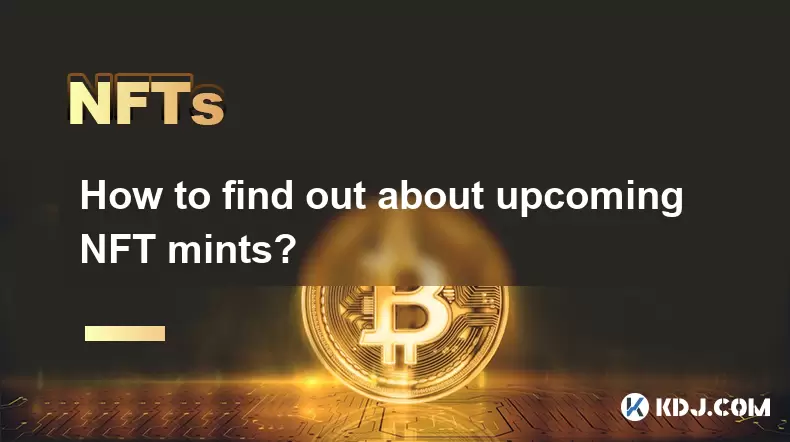
How to find out about upcoming NFT mints?
Jul 18,2025 at 11:50am
Exploring NFT Minting OpportunitiesUnderstanding the landscape of upcoming NFT mints is crucial for collectors, investors, and creators who wish to st...
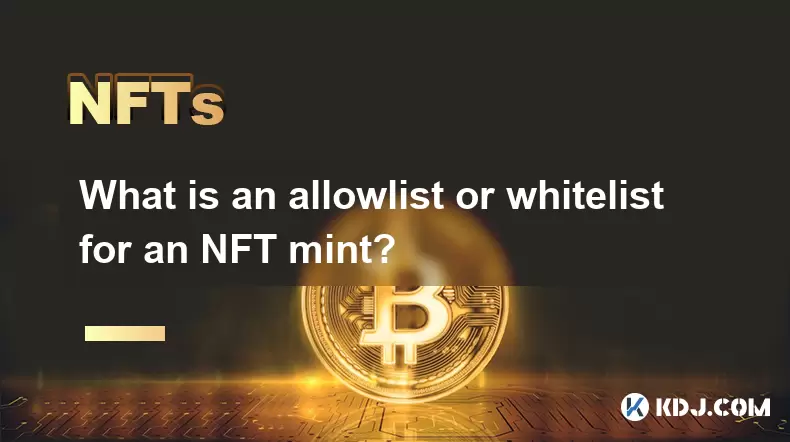
What is an allowlist or whitelist for an NFT mint?
Jul 20,2025 at 07:14pm
Understanding the Concept of an Allowlist for NFT MintingAn allowlist, also commonly referred to as a whitelist, is a mechanism used in the NFT mintin...

Is it possible to get a refund on an NFT?
Jul 21,2025 at 08:35pm
Understanding NFT Transactions and RefundsWhen you purchase an NFT (Non-Fungible Token), the transaction is typically recorded on a blockchain, making...

What happens to NFTs when the owner dies?
Jul 22,2025 at 02:43pm
Legal Ownership and Digital AssetsWhen an individual owns NFTs, the question of what happens to these assets upon their death is a pressing one. NFTs ...

What are the tax implications of gifting an NFT?
Jul 19,2025 at 04:21am
Understanding the Basics of NFT GiftingGifting a Non-Fungible Token (NFT) involves transferring ownership from one individual to another without recei...

Can you trade NFTs on your phone?
Jul 18,2025 at 04:29am
Trading NFTs on Mobile DevicesYes, you can trade NFTs on your phone, and the process has become increasingly streamlined thanks to a variety of mobile...

How to find out about upcoming NFT mints?
Jul 18,2025 at 11:50am
Exploring NFT Minting OpportunitiesUnderstanding the landscape of upcoming NFT mints is crucial for collectors, investors, and creators who wish to st...

What is an allowlist or whitelist for an NFT mint?
Jul 20,2025 at 07:14pm
Understanding the Concept of an Allowlist for NFT MintingAn allowlist, also commonly referred to as a whitelist, is a mechanism used in the NFT mintin...
See all articles

























































































